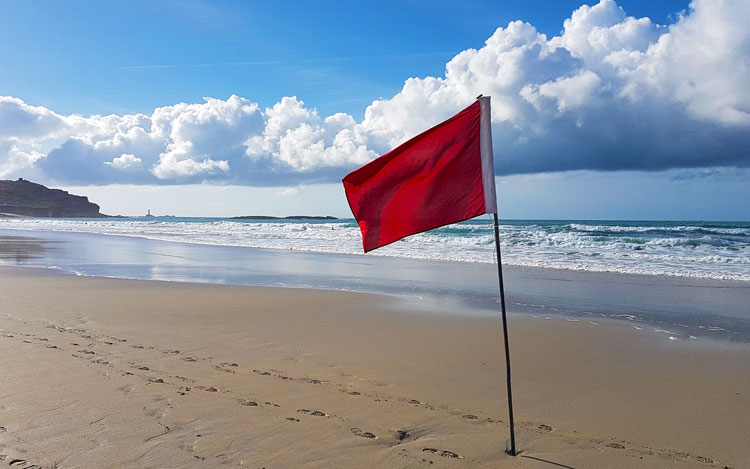Beach Safety
| Last Updated:
The beach is a great place to relax and enjoy the sun and sand. However, it's important to be aware of the potential dangers and take steps to stay safe. Here are some tips to ensure a safe and enjoyable beach experience:

- Know the risks. Before you head to a particular beach, be sure to check the weather forecast and be aware of any potential hazards, such as rip currents, high waves, or jellyfish.
- Choose a lifeguarded beach. Lifeguards are trained to help people in distress and can provide first aid if needed. Check there is a lifeguard on duty before entering the water, and be aware of any warning flags posted at the beach.
- Swim between the flags. Lifeguards typically mark safe swimming areas with red and yellow flags. Stay within these areas and avoid swimming alone.
- Don't swim when you're tired or have been drinking alcohol. Fatigue and alcohol can impair your judgment and make it difficult to swim safely.
- Be aware of the tides. The tides can change quickly, so be sure to check the tide charts before you go swimming. In addition it is not uncommon for people to be cut off as the tide comes in when they go exploring – so plan ahead.
- Wear sunscreen. One of the most important safety measures to take at the beach is protecting yourself from the sun. Wear a wide-brimmed hat and sunglasses, and make sure to use a sunscreen with an SPF of at least 30. Reapply sunscreen every two hours, or after going in the water.
- Stay hydrated. It’s easy to become dehydrated when spending time in the hot sun. So drink plenty of fluids, especially water, when you're at the beach. Avoiding alcohol can help prevent heat exhaustion and other health issues.
- Watch out for rip currents. Rip currents are strong currents that can pull you out to sea. If you get caught in a rip current, don't try to swim against it. Instead, swim parallel to the shore until you escape the current.
- Be mindful of wildlife. Beaches are home to many different types of wildlife, including sea turtles, jellyfish, and other sea creatures – some of which may be dangerous. Be aware of your surroundings and avoid disturbing any animals or plants you may come across.
- Don't leave valuables unattended. Be sure to keep your valuables, such as wallets and phones, close to you at all times.
- Be aware of your surroundings. Keep an eye on your children and be aware of any potential hazards, such as cliffs or sharp rocks.
By following these tips, beachgoers can stay safe and have an enjoyable time while at the beach. Remember to always use common sense and be aware of your surroundings. Have fun and stay safe!